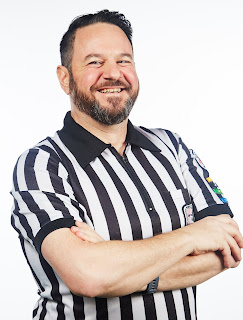We’re writing today because we know the process of the PSF Board’s review of DjangoCon Africa’s recent grant application caused concern, disappointment, and confusion for some of our community. We want to take time to explain that process clearly, and how we plan to improve moving forward.
First of all, we’re pleased to say that on October 11th the PSF Board voted to approve DjangoCon Africa’s $9,000 grant request. We’re wishing lots of luck to the organizers and everyone involved–
check it out here! DjangoCon Africa is a community-run event that will take place for the first time this year November 6-11 in Zanzibar, Tanzania.
If you are reading this, you probably already know that the PSF runs a grants program that disperses funds to Python events and groups, (
info on how to apply for your own event here). Last year we gave out $215,000 to 138 groups in 42 countries. For the majority of grants, the decision of whether or not to fund a grant request is made by consensus by the Grants Working Group, which is made up of volunteers from the community (huge thanks always due to them for what they do.) Some grants require the Board to review and vote on them instead: grant requests over $10,000; grants with a per person per day cost greater than $15; and grants that the Grants Working Group can’t reach a consensus decision on.
Because after discussion the working group couldn’t reach a consensus on the DjangoCon Africa request, it came to the Board for a vote instead. The Board first discussed the request in our September meeting, however the resolution to grant the request didn’t pass because the majority of directors abstained (6 abstentions, 4 yes votes, 0 no votes). The board members who abstained had a variety of reasons, including our Board Chair who was required to abstain because she is an organizer of DjangoCon Africa; others had open questions about the details of the grant request (e.g. related to budget) that we didn’t have time to resolve or had concerns about how to best support our community members with respect to safety, security and equity in the context of international events taking place in jurisdictions with laws that are harmful to certain community members (in this case, the criminalization of homosexuality in Tanzania) but not wanting to apply a new rule unfairly to this event. The reason for each board member's vote is always as nuanced as the board member casting it each time a vote comes to decision. In this case, it was agreed that there was not sufficient time in the board meeting to review the merits of the application, which bears no fault of the DjangoCon Africa organizing team.
The request came back in front of the Board for our October meeting, at which point we’d been able to get more information, time to review, and read letters on the event's impact. This vote passed (1 abstention, 10 yes votes, 0 no votes), which we believe reflects the values of an informed Board working together. We’re thrilled to be able to support the Django and Python communities in Africa in general and in Tanzania in particular, and especially for what is shaping up to be a great new annual event. Every decision made, with or without feedback from the community, affects dozens to hundreds to thousands of Pythonistas and the Board is always cognizant that our desire to provide timely, enthusiastic support must be balanced with the responsibility to steward funds carefully and fairly.
Because of the harm expressed in the community due to the Board’s process, we will be conducting a retrospective on this process specifically and the Board's approach to grants in general. To be completely clear, the points that will be discussed in our retrospective have everything to do with process improvements and event inclusivity and nothing to do with the merits of the event in question. We’re likely to address process issues in the short term and strategy over a longer period of time. The discussed topics are likely to include, but are not limited to:
- The PSF's approach to grant making in general
- How to best serve the global community, especially marginalized members for whom safety can be a concern when traveling
- Parliamentary procedures
We value community perspective. If you would like to share any thoughts or feelings on this topic, please feel free to share your thoughts – anonymously if you prefer –
via this form.
Once complete, our retrospective can be found in our
meeting minutes archive along with the minutes for all of the board's previous meetings.
Thank you for helping us make the Python community the best it can be,
The PSF Board of Directors





